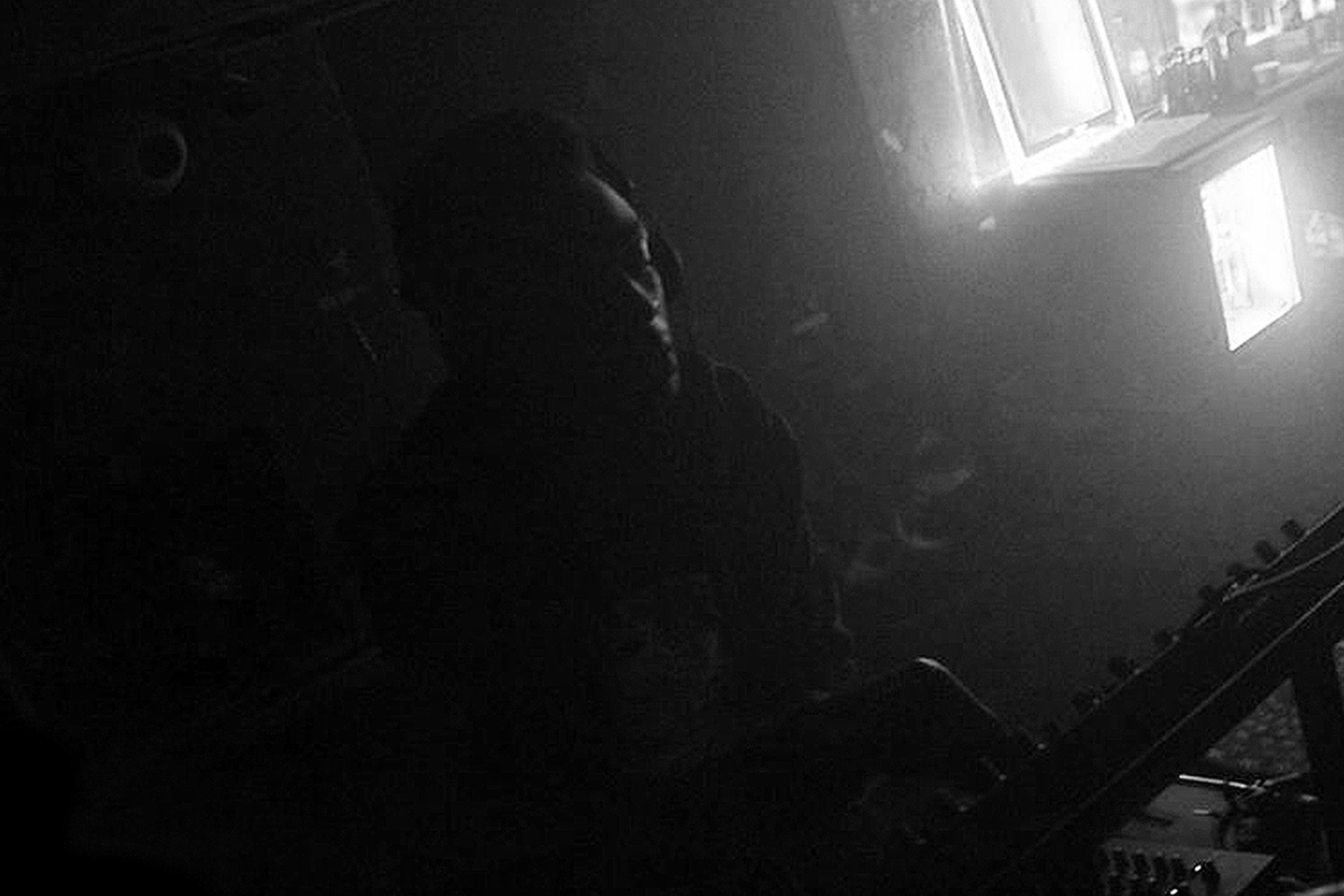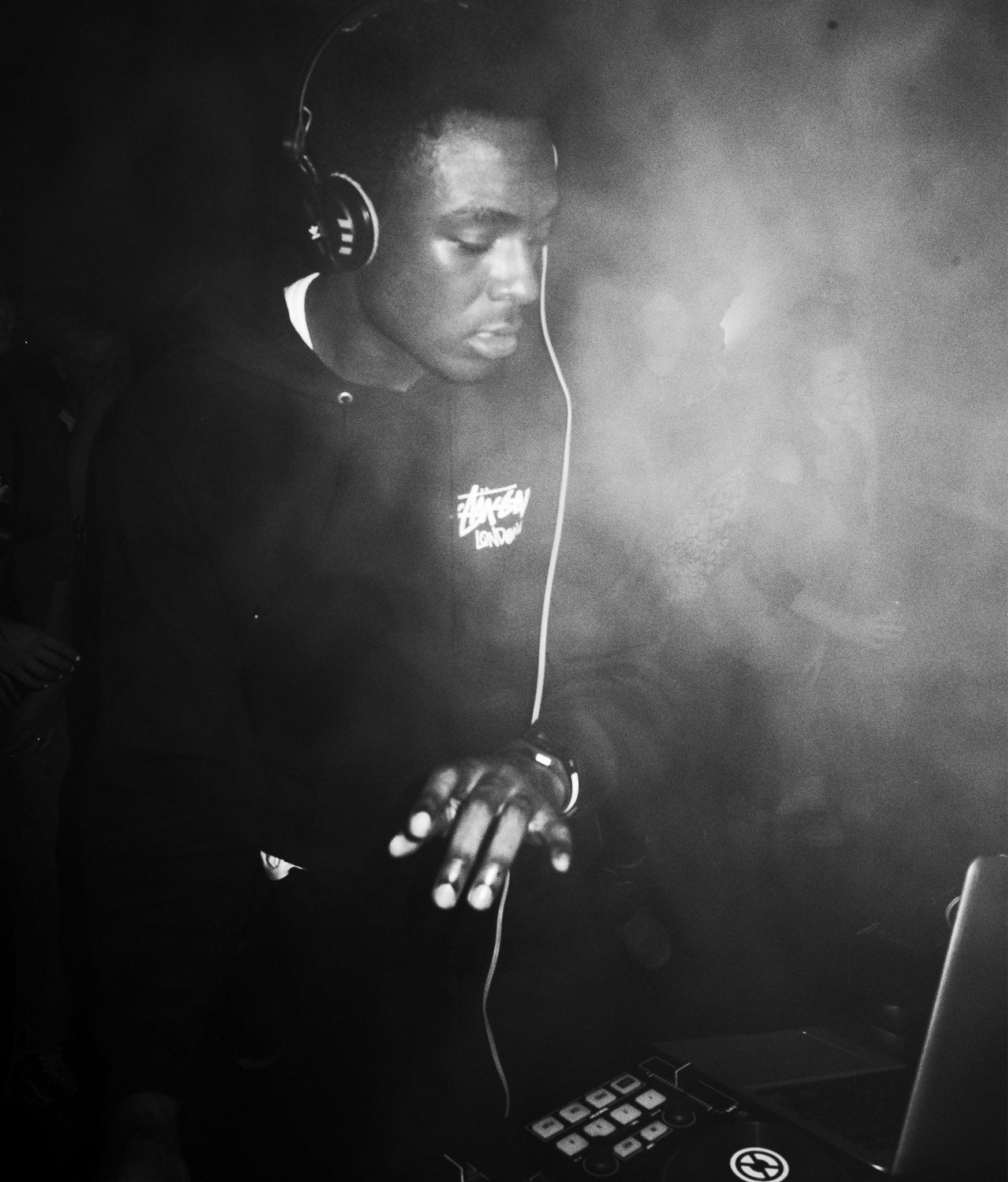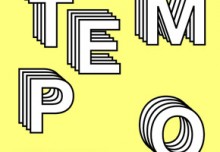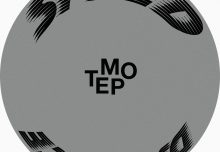Few artists have emerged from the recent jungle resurgence like Tim Reaper, whose explosive productions have quickly earned him widespread acclaim. Joe Rihn gets to know this highly gifted, yet somewhat reclusive producer.
“It’s like every day is almost the same,” says London web developer Ed Alloh, comparing his life now to the way it was a year ago. “I get the work laptop out and just work, and then when that’s done just switch over to the other laptop and work on music stuff.”
When it’s time to make music, Alloh becomes Tim Reaper, one of the heaviest sonic technicians this side of the millennium. His genre of choice: jungle, the spontaneous, speaker-wrecking older sibling of drum & bass. Known for its rapid breakbeats, cut-and-paste samples, and roots in Caribbean sound system culture by way of London, jungle is not for the faint of heart. This music exists in its truest form at the highest volumes, when the bass frequencies start rattling your skeleton and you can feel each burst of pressurized sound moving your hair.
It’s a phenomenon that rose from the ashes of London’s early acid house scene, reaching its high point in the mid-1990s. Diluted by its own quest for progression and pushed out of the limelight by UK garage and grime before the year 2000, to all but the most die-hard junglists, the genre seemed confined to the annals of underground history. But now, among a growing sector of adventurous young ravers, producers, and nostalgic holdouts from the original era, jungle is catching on again. As a producer and DJ, Tim Reaper is one of the figures at the forefront of jungle’s new wave. With a reverence for the genre’s storied past and a determination to unlock its future, Reaper is guiding jungle into a brave new era.
Sitting in the nondescript room that now doubles as his home office and studio, Reaper seems perfectly at ease speaking into the computer screen. Now in his late 20s, Tim Reaper is about as old as jungle music itself. And much like the genre’s unlikely comeback, his relationship with jungle bucks historical trends. With a demeanor that is affable but not animated and eager without being excitable, he recounts the series of chance events that brought drum & bass, and soon after jungle, into his life.
“The way I got into drum & bass was from school,” he explains. “There was an assignment I had to do for this course called media studies, where you study magazines and movies and that kind of stuff. For the assignment, I basically had to compare two different magazines in the music industry. I went to Tescos and got two magazines, Metal Hammer and Mixmag.” That particular 2007 issue of Mixmag happened to come with a mix CD by Andy C, founder of RAM Records and a legend in drum & bass. “Out of curiosity I listened to the CD, and I was completely taken in by the energy. The tunes were like nothing I’d ever heard before, and I had to find out more.”
Diving into online forums, Reaper uncovered everything he could about drum & bass. But it was hearing DJ Hype through another mix CD that really sent him down the rabbit hole. Next, his research led him to a fake page for DJ Hype on Myspace, where he found two pieces of music that were much closer to jungle than the drum & bass sounds he had been soaking up. “There were two tunes on there, ‘Dred Bass’ by Dead Dred and ‘Super Sharp Shooter’ by DJ Zinc. I don’t know why, but those two tunes — I listened to them more than any drum & bass tunes I’d ever heard.” Almost instantly, Reaper was hooked, and soon he was diligently “digging through artists and labels, their whole back catalogs.”

Given how strongly the adolescent Tim Reaper connected with jungle, it’s curious that it was the first music he really fell for. He remembers having a passing interest in the grime and UK hip hop videos he watched on channels like MTV Base, but those sounds never compelled him to dig deeper. “I wasn’t really into it to the point where I had to find online communities or had to learn how to make music,” he says. By contrast, Reaper was “so taken in by jungle” that he knew he had “to get involved in it somehow.”
For Reaper, that journey started with production. Not only was making jungle the first subcultural artform he wanted to pursue, it was his first experience learning music, period. “I had no musical experience at all before I learned to produce. Not a single music lesson,” he says. So in true 21st century style, Reaper became a musician by composing beats on a laptop. What Reaper lacked in technical experience when he started producing in 2009, he made up for with aesthetic vision. “From the start I knew I wanted to make jungle,” he says. “My early tunes just sound like very basic, rudimentary attempts at trying to get to the sound that I’m at today.”
Step by step, Reaper taught himself to construct each element of a jungle tune, beginning with the sliced-up breaks. “I started off with Fruity Loops [since renamed FL Studio], which I still use because basically, the first thing I wanted to learn how to do was chop breakbeats up. I was looking at tutorials for different DAWs [digital audio workstations], and Fruity Loops seemed to be the most intuitive one.” Next came the task of programming basslines, synths, and vocals, followed by arranging and mixing. “It just all seemed to flow quite well with Fruity Loops, so I sort of just stuck with it,” says Reaper.
But at the height of UK dubstep, making throwback jungle tunes wasn’t the easiest way to get noticed or build an audience. Contrasting the musical climate during those years with today’s blossoming jungle scene, Reaper says, “As much as I knew there were other people doing that style as well, I didn’t really feel like there was this community of like-minded people.” Instead, he describes a loose network of DJs and producers working across an array of styles that emerged in the wake of drum & bass. Nevertheless, Reaper built a list of online contacts and shared his work via AOL Instant Messenger in the hopes that someone might share his taste for jungle or offer valuable feedback. “I had people making jump-up, neuro, liquid, techy rollers,” he says, rattling off a list of increasingly specific subgenres. “I would just send all of them the tunes.”
Jungle pursuits like Reaper may have been few and far between. But his work eventually reached DJ Trace, a veteran of the ’90s jungle scene and the author of some of the genre’s best-loved tracks. The eventual result was Tim Reaper’s remix of “Final Chapta”, a head-spinning rework of Trace’s steamroller from the hallowed days of ’95. It was also Reaper’s first time on wax.

Since that first release, Reaper’s approach to jungle has combined explosive creativity with a deep respect for the genre’s past. Set apart by his ability to distill jungle to its basic essence and re-engineer it for modern-day audiences, Reaper’s prowess as a producer is inextricable from his dedication as a student of musical history.
On the flipside, Reaper spends a lot of time considering the implications of working in a genre that had its heyday 25 years ago. “I’m not going to lie. I think jungle has had its golden era,” Reaper confesses. “The ’93 to ’95 period — that is the peak. We can try our hardest to make really good jungle, but that era — it wrote the blueprint.” In turn, Reaper empathises with those who feel that they’ve heard it all before. Furthermore, he acknowledges that revivalism can occasionally lead to mediocrity. “Sometimes people feel like it’s easy enough to sort of reference the best tunes and get by on that,” he says after pointing out the artistic dead end that can arise when new jungle producers sample old jungle tunes.
But Reaper also thinks the challenge of making jungle tunes that speak to new listeners and veterans alike can inspire quality work, and he sees plenty of avenues for jungle to grow. For example, today’s artists have more powerful gear, new music to sample and the ability to reevaluate older sounds through current aesthetic sensibilities. Reaper also brings up an important factor in the genre’s chronology. “The old-school jungle style that I make…only really lasted for two or three years before it morphed into what people call drum & bass now. So it sort of feels like there was some unexplored terrain.”
Regardless of jungle’s popularity or how long it’s been around, Reaper just feels a certain magnetism toward it. “For one thing, it’s the energy these tunes carry. They have so much pace, and ideas of all these sounds weaving in and out.” And although jungle boasts a distinctive sound, he also finds a kind of freedom with its boundaries. “I can’t say with jungle that there are no rules, but in a way it’s more open [than other genres]. It doesn’t have to do this or that within 32 bars . . . It can do almost anything it wants to.”
At this point, Reaper is a seasoned producer, but his music still comes out of a humble home studio. “I haven’t got any external outboard hardware or anything like that at the moment,” he says. “I never really had the space or the opportunity to build up equipment. Until last year I didn’t have speakers. I was always producing on headphones.” Don’t be fooled by his simple setup though. The tracks in Tim Reaper’s catalog are as rich, as detailed and as devastating as anything the jungle scene has produced.
When it’s time to make a new track, Reaper typically begins with a harmonic idea rather than a drum beat. “Usually I start off with a sample, a melody or a sound that sort of kicks off a hook in my head,” he says. Although his workflow includes more synthesis these days, Reaper says sampling has always been at the heart of his process. “For a long period of time, it was just samples. My previous computer wasn’t very good at all, so if I tried to load up any synth VST [Virtual Studio Technology], the DAW would slow down.”

Another key to his workflow is separating sound design from songwriting. “I like to prep sounds before I actually make a tune rather than experiment in the session,” Reaper explains. “If you have your sounds ready to use when you go into the actual tune to make all the arrangements, it’s full focus on getting it done.”
Tim Reaper’s productions may be pushing the jungle scene forward, but that shouldn’t overshadow his talents as a DJ. Looking back, Reaper didn’t originally see himself getting behind the decks. “I always felt like DJing was the kind of thing where you needed so much kit at home, and I didn’t really have much money. I just felt like it was never really going to happen.” But once he was a university student with a few years of production under his belt, that began to change. One factor was the reality in electronic music that producers need to DJ in order to perform live. “If you want to get booked for a club night because you’re a producer and people like your tunes, they sort of expect you to be able to mix competently,” explains Reaper.
DJing has since become a key part of Reaper’s musical practice. It’s also something he seems to have a natural aptitude for. Hear him describe his listening habits and it becomes obvious that his brain is hardwired to process and catalog every record he encounters with scrupulous attention to detail. With all of that knowledge, DJing gave Reaper a way to share what he’d learned. “It sort of gave a validation toward all the music I’d found. Because if you know loads of music but you don’t DJ, there’s not really any other way to showcase it.”
Although he is a lifelong Londoner, Reaper says the internet had more to do with getting him into jungle as a teenager than growing up in the genre’s birthplace and historical epicenter. But once he was old enough to go to clubs, living in London started to pay off. “I could go out every weekend and have something offered to me that I would actually enjoy,” he says. Among the nights that helped cement Reaper’s dedication to the music were Jungle Syndicate, Technicality and Rupture. An influential drum & bass club founded by DJs Double O and Mantra, Rupture in particular played a key role in cultivating the modern jungle scene. “They were a very, very important night to my musical taste,” explains Reaper while reminiscing about playing back to back there with Kid Lib and Dwarde.
There were also nights in Sheffield that laid the foundation for today’s jungle renaissance, organized by Kid Lib for the roster of his Green Bay Wax label. “Those were quite important nights for me because at the time, I was very much affiliated with the Green Bay Wax crew,” says Reaper. “It was a really good vehicle to showcase your tunes to the other guys on a proper sound system. At the time, there weren’t really nights dedicated solely to the new old-school jungle stuff that I felt my heart was in.”
A few years later and that small community of later-day junglists has finally made its presence known to the wider world of electronic music. But in a cruel twist of fate, the scene’s breakout year ended up sidelined by COVID-19. With venues closed indefinitely, revenue streams dried up and the music industry left floundering, jungle’s big resurgence was all but grounded.
In fact, Reaper was about to start his own club night called Future Retro to showcase the scene. With those plans dashed while he was still promoting the first night, Reaper decided to salvage what he could by channeling his energies into a new record label. With four releases to its name, the label has exceeded all expectations. “It seemed to be good timing, surprisingly. You’d think that starting a record label during a pandemic was really bad, but it actually turned out to be really good to me.” Thus far, Future Retro has focused heavily on collaboration, pairing Reaper with another contemporary jungle artist for each track. “There were loads of producers in the new jungle scene that I really liked,” he says. “I felt like this would be an opportunity to get in touch with people.”

The biggest factor in Future Retro’s unlikely success? It’s probably the decade Reaper spent grinding and honing his craft for a tiny audience of die-hard junglists. Years before Future Retro came about, Reaper was already releasing his own tunes on Globex Corp, a subdivision of 7th Storey Projects that he co-founded with DJ and producer Dwarde back in 2016 — a time when jungle was anything but in vogue. With the kind of heavyweight tracks that are like catnip to old-school jungle heads, the label is known for helping to usher in the jungle resurgence. If you aren’t familiar with the music, you might still recognize the label’s brazen Simpsons-themed artwork and references to the show — a comedic obsession shared by Reaper and Dwarde. Although it started as a one-off release and was almost derailed by a copyright stickler at the pressing plant who wouldn’t print a Simpsons screencap on the center label, the imprint now has over 10 releases to its name.
By managing his own releases, Reaper feels that he has gained invaluable insight into navigating an industry that can be both confusing and cutthroat. “At the end of the day it’s not really about money. It’s more about getting what you’re worth,” he says. “When you do your own release, you start to understand your worth a bit better because you know from firsthand experience.”
These days, Reaper isn’t the only one who knows the value of his talent. “I don’t know what it is, but [since] the past summer, the attention I seem to be getting for my music has grown exponentially,” he says. “It seems like I’ve got a raised profile from the Lobster Theremin releases, from the Black Bandcamp stuff that would mention me, from some of the streams I was doing online.” But along with that momentum comes pressure to meet the growing expectations placed on musicians. “I think back in the day, you probably could have been just an artist focused on the music and it was up to you how much of the backend you wanted to get involved with. But nowadays you have to have more abilities in terms of what you can do beyond just making music.” Not only do producers today serve as their own songwriters, performers, arrangers, and audio engineers, they are increasingly responsible for their own PR and promotion by way of social media.
“I guess I’m a bit reluctant to put myself out there in terms of how much of myself I mention on social media,” says Reaper. “I prefer focusing on the music and promoting when I need to, rather than daily interactions and posts and stories. I don’t really have the energy for that.” Although Reaper maintains an Instagram account for Future Retro, you won’t find much beyond that. “You have to be able to talk about yourself in a way that people want to buy into your brand,” he continues. “It’s quite alien to me, but it’s a lot more alien to other people I work with.”
For how much communication takes place through YouTube, Facebook and online forums, Reaper makes a good point — the modern jungle community isn’t exactly known for its savvyness with Instagram or Twitter. Just consider how long the scene was brewing before larger labels and press outlets took notice. In an era that feels ever more fixated on online presentation, that dynamic raises concerns for Reaper about the trajectory of this tight-knit scene. He thinks things could become “weighted toward the producers who do use social media because they’ll start to get the easier fans who may not be able or may not choose to do any further digging.”

Reaper’s day job also adds to the hesitance he feels toward social media. “Because I’m a web developer as well, I sort of know the implications as to how much data is being collected about all of us by all these places. All the dark patterns, all the manipulation. All the AI and algorithms that work out what you’re like and feed back at you. All the ways it tries to trick you into spending more screen time on Facebook and Instagram. It just feels a bit toxic.” Perhaps Reaper’s stance is more skeptical than the average millennial, but his sentiments are right at home in the canon of jungle, where many of the best-known works sample dialogue related to data hacking, cyberpunk criminality, and dark futures.
With so many artists struggling to stay afloat or to access their creativity while the world around them falls apart, Reaper is just grateful to have a job — especially one that allows him to work from home within arm’s reach of his studio. Yes, daily life can be monotonous, Reaper admits, and he misses the thrill and social aspects of live music. But throughout the pandemic, his creative output only increased. In 2020 alone, his tracks appeared on half a dozen records, plus the four he put out on Future Retro. Just this year he’s already returned for his second outing on Lobster Theremin and dropped an entire mind-bending 12-inch of Special Request remixes for Sherrelle and Naina’s Hooversound label. Plus there’s more on the way. A lot more. “I’ve probably got about 25 vinyl releases planned for the year,” he offers for a conservative estimate.
Reaper comes across as a bit of an introvert, which makes his astounding level of productivity easier to fathom. While some people languish in the boredom, the isolation, the repetition, others find that the quiet helps them work. Then there is the source from which Reaper derives most of his creative energy — music itself. “I don’t really depend on outside sources for my inspiration,” he says. “If I’m just in all day, I can still feel inspired as long as I’m digging for samples.”
Tim Reaper may be hardwired for music production and more dedicated than most, but his expectations for what music can achieve are surprisingly humble. He won’t change the world with his tracks — he isn’t trying to. And amidst all the upheaval, the death, the overdue reckonings with racism, inequality, and violence, Reaper believes he has a lot more to learn than he has to say. But in a moment fraught with so much suffering, what artist doesn’t wonder if what they do matters at all?
“I think for people, music can be an escape. You can sort of channel out the outside world by going into music. Whether you feel like that’s a bad thing or a good thing, it’s the truth,” he offers. “The importance is in how much joy it brings to the listener…the way it makes them feel, the memories they attach to it. I think that’s the worth.”





